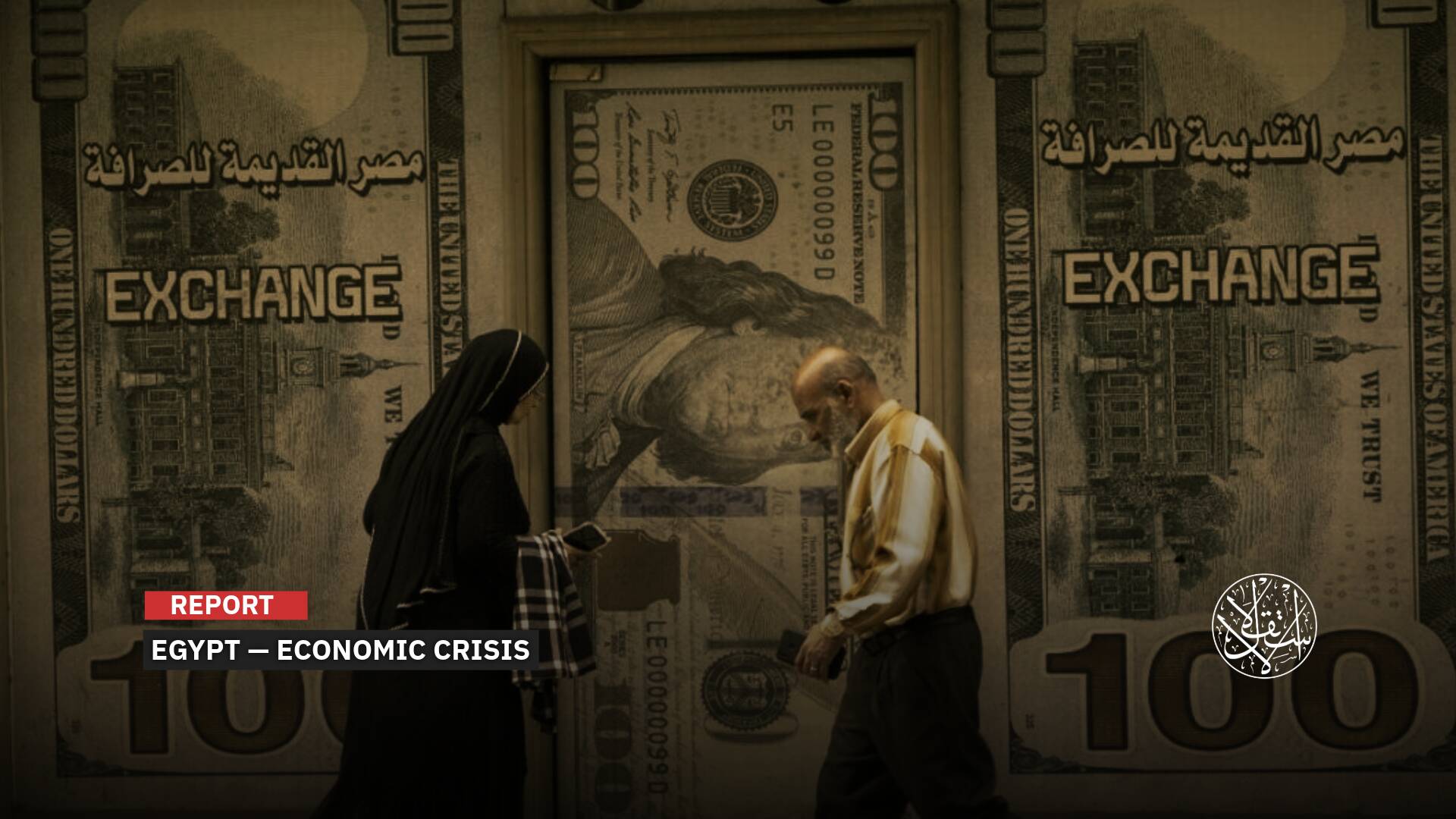For These Reasons, the Far-Right and Populists Have Retreated in German State Elections

Elections in Germany’s largest state, North Rhine-Westphalia, showed a further decline in support for populist parties on the far right and the left and have raised questions about the waning popularity of Chancellor Olaf Schultz, the Guardian reported on May 16, 2022.
“In marked contrast to the recent French elections, which showed the increasing strength of the far right and the far left, the two German state elections also showed a decline in support for the far-right Alternative for Germany party (AfD) and the left party (Die Linke),” the British newspaper said.
It is noteworthy that the past few years have witnessed a remarkable rise of the extreme right, the AfD party—representative of that trend—has become present and is achieving mounting results that have already brought it closer to participating in the government coalition during the last parliamentary elections last year, and which happened before.
Shifting Political Scene
The Christian Democratic Union party (CDU), the party of former Chancellor Angela Merkel, and the Greens party also managed to make significant gains in the North Rhine-Westphalia state elections. They are expected to continue to rule in a three-way alliance with the Free Democratic Party (FDP), according to the Guardian newspaper.
“The CDU, headed by the current state governor, Hendrik Wust, has become the strongest party in North Rhine-Westphalia, after winning 35.7 percent of the vote, and the Social Democratic Party (SPD) came in second with 26.7 percent of the vote, its worst result in the post-war era,” it pointed out.
The Greens party tripled its results from the previous elections in 2017, to get 18.2 percent of the vote, while the pro-business FDP party declined to 5.9 percent.
The AfD party suffered a surprise loss of two percentage points in North Rhine-Westphalia, and fell below the 5 percent electoral threshold in Schleswig-Holstein, while the Left party will not be represented in parliament in the two states.
It should be noted that this is the second defeat of Schulz's party against Merkel's party in state elections. In the Schleswig-Holstein state elections that took place on May 08, the SPD party scored a historically poor result with 16 percent of the vote, while the CDU party outperformed it by a large margin, taking 43.3 percent, according to German ARD and ZDF channels.
In turn, German Chancellor Olaf Scholz expressed his regret over the poor result scored by his SPD party in the elections to the state of North Rhine-Westphalia, but he saw at the same time that there is a possibility to form a coalition government in the state led by the SPD party.
The SPD's crushing loss comes six months after Schulz and his party won national elections, and after successfully presenting themselves as a leader following in the footsteps of outgoing Chancellor Angela Merkel.
However, the Russian invasion of Ukraine turned some of Shultz's positives into negatives, and affected his position on the war, especially his reluctance to provide heavy weapons to help Kyiv resist the invasion, and he has also become accused of failing to take a clear position on arms exports or energy embargoes, according to the German newspaper Süddeutsche Zeitung in its report issued on May 17.
The newspaper emphasized that “politics related to Ukraine played a role in German state elections,” noting that “a poll conducted by the Infratest dimap showed that only 46% of the population consider Schulz’s path towards Ukraine correct.”
Based on the previous results, it is not clear who will rule the state, which is home to about 18 million people, as it is possible to form several coalitions to form a federal government.
Incumbent Governor Hendrik Wust needs to enter into an alliance with the SDP party or the Greens party.
However, the Greens party is likely to play a decisive role, either through an alliance with the SPD party (center-left), as is the case at the federal level, or by approaching the CDU party (center-right), which ruled the state for 5 years with the liberals.
Political Decline
Perhaps the accusations of appeasing Russian President Vladimir Putin were one of the most important factors that contributed to the noticeable decline of far-right parties.
The AfD and the Left were the only parties to vote against sending heavy weapons to Ukraine in the Bundestag (Federal Parliament) at the end of last April.
It is noteworthy that the decline in the popularity of the two parties, whose positions contradict each other on most issues except for Russia, precedes the war in Ukraine, according to the Deutsche Welle network in its report on May 18.
The AfD party had quickly ascended to the political scene in Germany during the past years, relying on the adoption of populist issues in public opinion, most notably: the issue of immigrants and the eurozone crisis, but its popularity began to decline with the change in the popular mood, which led to losses in the last eight successive state elections.
“This is the first time that the AfD has failed to enter the Schleswig-Holstein state parliament, having succeeded in elections in all 16 federal states by leaps and bounds since its founding in 2013,” the network added.
In the 2017 general election, the AfD became the strongest opposition party with 12.6 percent at the federal level, although it is considered so dangerous that it is monitored by the Constitutional Protection Agency (Internal Intelligence).
This is not a good recommendation for the parliamentary elections in 2022, which will take place in October in Lower Saxony, where the AfD did not achieve an excellent result in 2017 (only 6.2 percent).
The party had retreated in the 2021 Bundestag elections, taking 83 seats, due to its failure to mobilize its popular support with a new and strong cause, unlike what happened in the 2017 elections when it took advantage of the refugee wave in Germany in 2015 and 2016 when nearly a million people resorted to Germany due to wars and humanitarian crises.
As for the Left party, which sits on the other end of the political spectrum, the 2022 state election has also been a disappointment for it, and it has failed on all three of its last attempts to enter Parliament.
The Left party seemed lost after its narrowly successful entry into the Bundestag in September 2021, thanks to a special provision for parties with at least three direct mandates.
The party, divided internally between vociferous populist messages from its prominent member Sahra Wagenknecht and a more pragmatic faction, lost in the last seven successive state elections.
Extremism and Racism
The terrorist attack in Hanau, which was carried out by the followers of the far-right in Germany, in which they killed 9 people of Chechen origin, shocked the country.
At that time, voices were raised about the need to take a decisive position on the political party they see as being accused of feeding the ideas of the far-right AfD party.
The incident happened in 2020, at the time the AfD was the largest opposition party, with 89 seats out of 709 in the Bundestag, and had members in the parliaments of Germany's 16 states.
In turn, Cem Ozdemir, co-chair of the German Green Party, considered the AfD as the political arm of hate.
Meanwhile, Lars Klingbeil, Secretary General of the SDP party, called for the AfD party to be placed under the supervision of the security services.
In March 2021, the Internal Intelligence put the far-right party on the list of suspicious cases, which means that it is under police surveillance, and it is possible to monitor its communications or even introduce informants to its ranks.
It is a disgrace to put any party under surveillance in Germany because it is primarily reserved for extremist groups.
Indeed, the party, which built its success on its opposition to the immigration policy of former Chancellor Angela Merkel, lost momentum and was wracked by internal disputes, and then finished in fifth place in the last elections that took place last year.
Racism, in general, has become part of daily life in Germany, according to the first national report on discrimination and racism, a report whose summary was published at the beginning of this month, according to a report by the Deutsche Welle Network.
The report, whose details were described as shocking, concluded that racism has become pervasive in German society in a remarkable way, and does not affect only minorities in a country where one in four of its citizens is an immigrant.
More than 22% of the respondents said that they are subjected to racist abuse in one way or another on an almost daily basis, but more than 90% of them said they were sure they lived in a racist society, which raises serious questions about how seriously the German authorities take the activities of the far-right.














